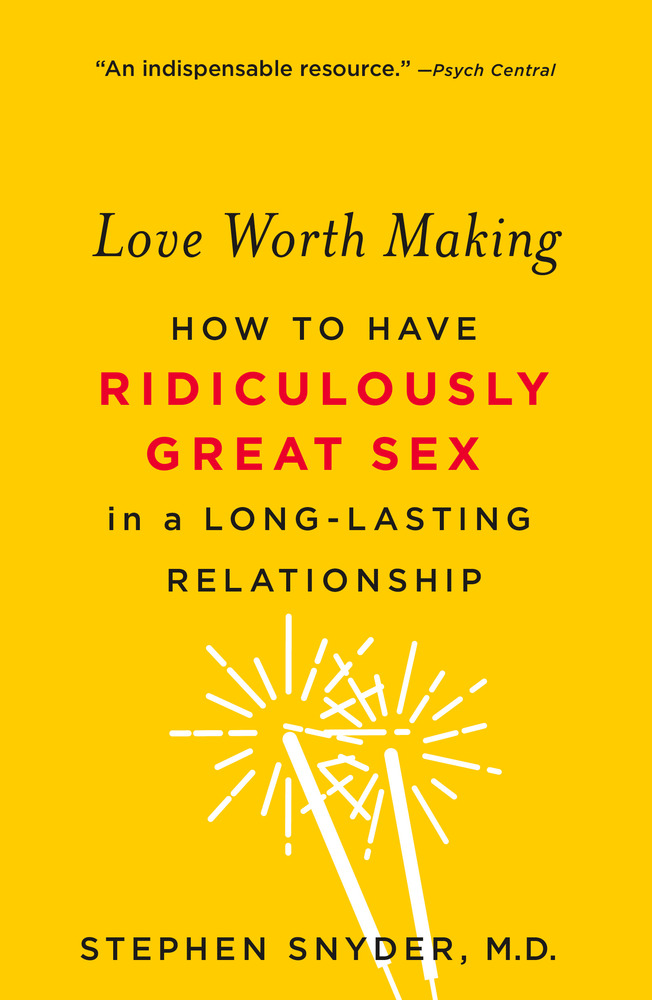10 Signs You’re in a Healthy Relationship
Good relationships are like a tree, with strong roots and flexible branches. Is yours growing strong, or is it time to … leave? (Yeah, pun intended.)
Last time I Googled the phrase “healthy relationship,” I got 3.3 billion results. Not 3.3 million. 3.3 billion. That’s nearly half the human population of the world. Clearly, being able to recognize a healthy relationship is a big concern for a lot of people.
I’m guessing that when most people search for “healthy relationship,” what they’re really looking for is to make sure they’re not in an unhealthy relationship. That makes sense, since good relationships are a prime ingredient for a happy life, and a bad one tends to be a miserable experience.
Buy Now

In my experience, there are 10 main signs of a healthy relationship. The first four are absolutely fundamental. You might think of them as the roots and trunk of a tree. You need them to be strong and secure.
The other six are a bit softer. You might think of them as like the branches of a tree. They have to be strong enough to hold together, but flexible enough not to break off in a high wind.
The first four signs of a healthy relationship—the roots and trunk of the tree—are easy to remember, because they all begin with “R.” We talked about them in How Not to Have a One-Sided Relationship.
Health relationship fundamentals
1. Healthy relationships are reliable
In a healthy relationship, you can count on the other person to do what they say they’re going to do, and to be where they say they’re going to be. You don’t have to worry about these things. If they make a commitment, you know they’ll honor it.
2. People in a healthy relationship give each other lots of reassurance
Most people in committed relationships need reassurance every day. Their “love languages” are often different. Some of us need verbal reassurance, some need acts of devotion, and some just need quality time together. But whatever love language you express it in, your partner needs to know—on a pretty much daily basis—that your feelings for them aren’t going to suddenly disappear.
Your partner needs to know—on a pretty much daily basis—that your feelings for them aren’t going to suddenly disappear.
3. In a healthy relationship, you’re both fully real
You both have real lives—family, friends, work—and you each want the other to know all about your life, and to want to be a part of it. You aren’t dodging around, trying to keep them from knowing secrets about you that you’re ashamed of.
If all goes well, these “three R’s” of a healthy relationship—Reliable, Reassuring, and Real—will allow you to do the fourth thing that begins with “R,” which is to relax.
4. A healthy relationship should feel relaxing
A good relationship should be a refuge from the storm outside. You should be able to let down your guard, and not have to worry. I mean, hey, life is hard. A good relationship should be a haven from worry. When you come home to each other, you should each breathe a little easier.
I’ll repeat what I said earlier—it’s important! These first four qualities of a healthy relationship—reliable, reassuring, real, and relaxing—are like the roots and trunk of a tree.
Room to grow in a healthy relationship
Now let’s get out into the branches. These relationship traits all have to do with how you balance your own needs with the other person’s needs.
Because in fact, you’re really two trees. And you both need light and space to grow.
5. A healthy relationship should strike a good balance between “we” and “I.”
No two people in a couple every fit precisely together. There are always parts of their personalities and lifestyles that don’t match. Which means that becoming a “we” is always to some extent an act of creativity.
One of the most important ways that couples become a “we” is as a result of making decisions together. Figuring out what they can compromise on, and what they can’t.
It’s much better to assume you’re never going to fit exactly together.
Unfortunately, a lot of couples try to force the pieces to fit when they really don’t—either by suppressing some vital part of themselves, or by forcing the other person to give up some vital part of themselves. Instead, it’s much better to assume you’re never going to fit exactly together.
But if you’re creative, you’ll figure out how to make it work. That’s what gives you the confidence to keep being creative as a “we” while still each being true to yourself as an “I.”
6. In a healthy relationship, you should care about each other’s feelings … but not too much
Obviously it’s important to be interested in how your partner feels, and what they think. Otherwise, you’re only in it for yourself. That’s just narcissistic, which isn’t good for any relationship.
Sometimes two people in a relationship can be like a fiddle and a bow. Without some friction, you’re not going to make good music.
On the other hand, you can’t care so much about your partner’s feelings that it makes you unable to stand your ground when the two of you disagree. You can’t just capitulate to make your partner happy. Sometimes two people in a relationship can be like a fiddle and a bow. Without some friction, you’re not going to make good music.
7. In a healthy relationship, you should feel close—but not too close
Couples often come to see me complaining that they don’t feel close anymore. Often the reality is they’re too close. For instance, a couple may complain that they never talk. But sometimes that’s because they feel they each already know what the other person is going to say. And it’s something they don’t want to hear.
Sometimes that disconnect is the result of not knowing how to really listen to each other. Really listening to the other person means staying in your own lane. You need to let the other person be a separate individual with thoughts and feelings that are different from yours, and you need to accept that being two separate people is okay.
8. In a healthy relationship, you should share a common vision … at least some of the time
In any committed relationship, you eventually have to come to agreement on certain really basic things—like where you’re going to live, and whether or not to have children. And it’s nice if you can also agree about a few other things—like religion, education, and what’s an acceptable standard of living.
But in any healthy relationship, there will be ways you don’t share a common vision at all. In fact, you might passionately disagree. That’s normal. It’s nothing to feel bad about.
In fact, not sharing a common vision can sometimes give a relationship what an agriculturist might call “hybrid vigor”—where breeding two very different varieties together makes the offspring hardier, and more resilient.
It’s also a good reminder that your partner wasn’t put on the earth to make you happy. And that you can’t control them, even though sometimes you’d very much like to.
9. In a healthy relationship, you should feel like best friends … but not all the time
Historically, there’s been a lot of research suggesting that marriage tends to make people happier. Not everyone agrees with this, though. In 2014, a new study published online by the National Board of Economics Research suggested that the crucial ingredient wasn’t just whether a couple was married, but whether they considered each other to be their best friend.
That makes sense. Most people treat their best friends very well. So if your best friend is also your spouse, it’s a good bet that you’ll take special care with their feelings.
In any healthy relationship, there will be ways you don’t share a common vision at all.
But as someone who sees a lot of couples with sexual problems, I can tell you it’s extremely common for a couple to come in saying “We’re best friends, but we never have sex.” In fact, I’ve begun to wonder whether there might be something inherently un-erotic about being best friends. After all, there’s a time for everything. A time to be best friends. And a time not to.
10. A healthy relationship shouldn’t feel like too much work
People who write about relationships often emphasize that having a relationship is hard work. But if you talk with people who’ve been married more than once, they’ll often tell you that one relationship was a lot harder than the other. Over multiple relationships, they learned an essential thing—relationships aren’t supposed to be a form of suffering.
Relationships aren’t supposed to be a form of suffering.
Life is difficult. A good relationship should be relatively easy. Sure, it might drive you crazy once in a while. Because no two people ever fit together perfectly. But if it feels like too much work, then maybe there’s a problem.
Just don’t always assume the problem is you. Sometimes it might be the relationship you’re in. A good relationship is supposed to make you feel good. If your current relationship isn’t making you feel good, then maybe it’s time to do something about it.






